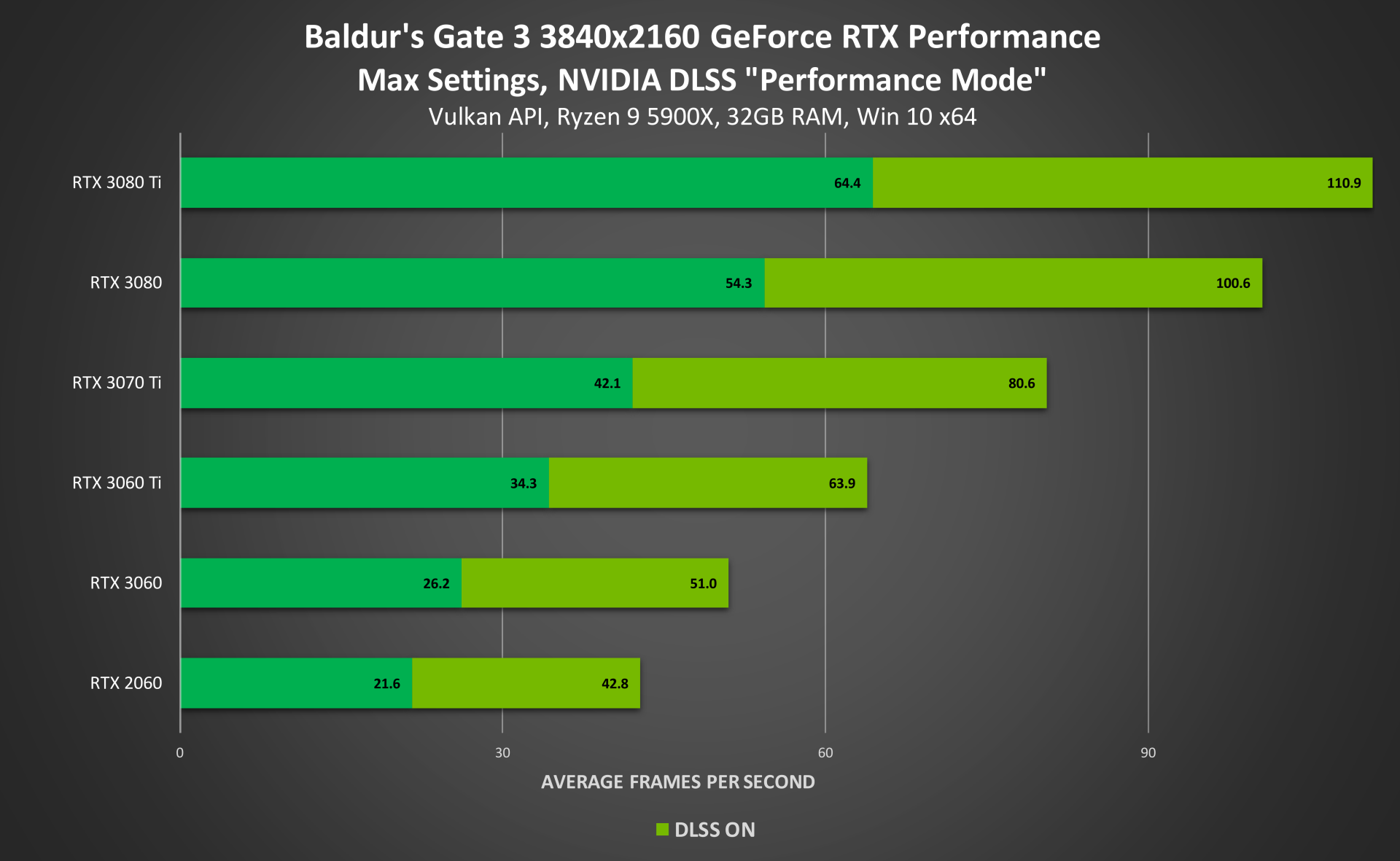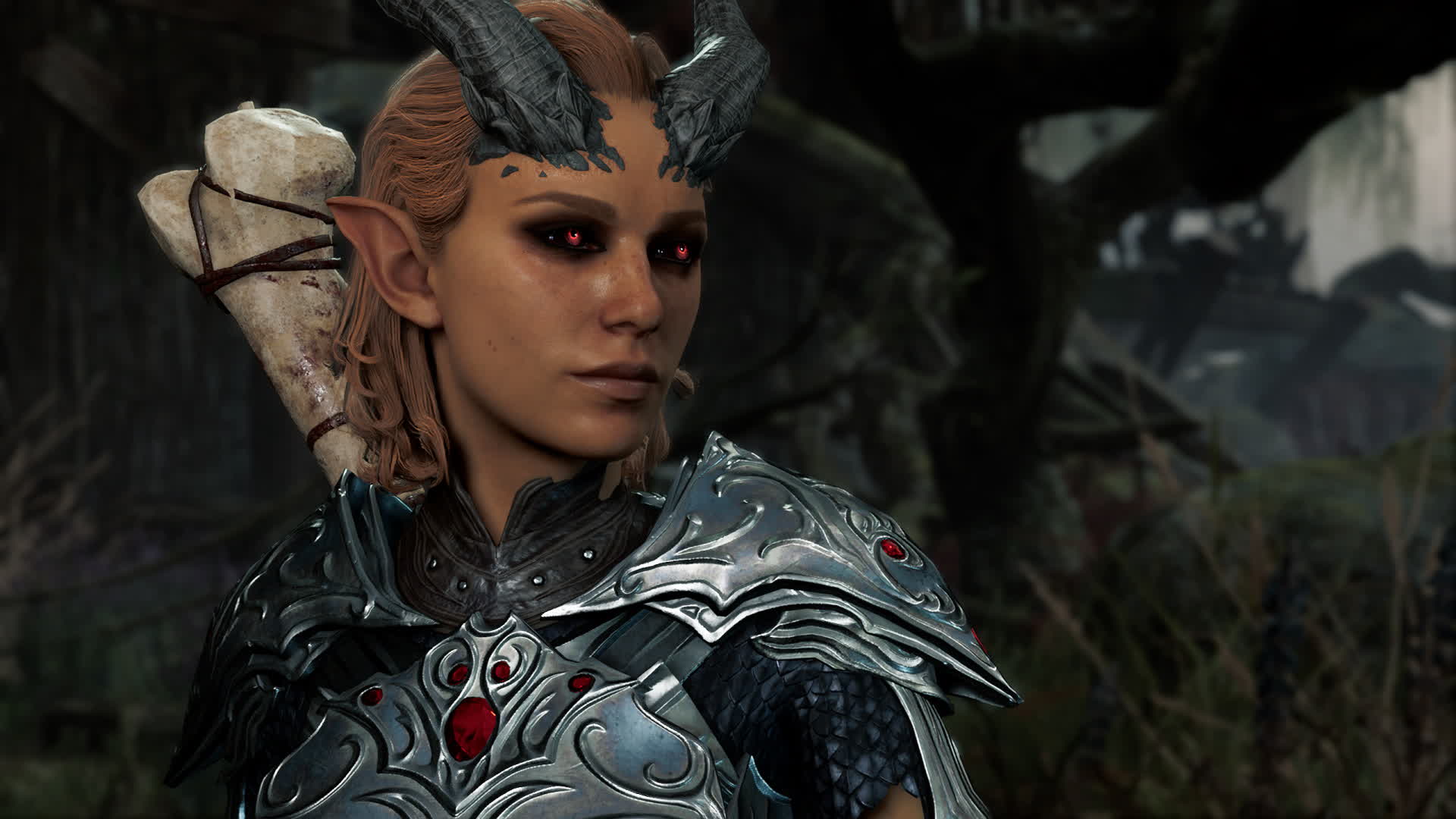What just happened? Nvidia's framerate-boosting DLSS technology is already available across dozens of titles (even big names like Cyberpunk 2077), but the list is expanding very soon. The latest version of DLSS is set to come to 10 more games, including Tomb Raider, the fantastic Baldur's Gate 3, and the Left 4 Dead-style survival shooter Back 4 Blood.
Nvidia has published an article announcing all the new DLSS implementations, and it has included before-and-after performance graphs for several games. As usual, we wouldn't advise readers to put too much stock in manufacturer benchmarks, but they're intriguing to take a look at and discuss nonetheless.
Before we get into Nvidia's DLSS performance numbers, here's a quick list of all the games set to receive DLSS support this month:
- Baldur's Gate 3
- Back 4 Blood
- Crysis Remastered Trilogy
- Rise of the Tomb Raider
- Shadow of the Tomb Raider
- Chivalry 2
- Sword and Fairy 7
- Swords of Legends Online
- F.I.S.T.: Forged In Shadow Torch
- Alan Wake Remastered
Some of these games have been out for a while and are getting post-launch updates for DLSS, whereas others will launch with the tech already included.
In either case, let's run through a handful of Nvidia's performance charts, starting with my personal favorite game from this list, Baldur's Gate 3.

Running the game at 4K using the Vulkan API and a fairly high-end test bench, Nvidia was able to see FPS gains of "up to 88%" with DLSS' "Performance Mode" preset enabled. For those running the humble RTX 2060, that means a performance jump of almost 2x. Your FPS could climb from an unplayable average of 21.4 all the way up to a reasonable (by 4K standards) 42.4.
Naturally, the RTX 3080 Ti fares far better, leaping from 64.4 FPS to 110.9 with DLSS on. As for the midrange, the 3060 TI goes from 34.3 to 63.9 FPS, which should allow for a stable 4K gaming experience.

Moving on to Back 4 Blood, the game already seems to run quite well with RTX's Performance preset on. The 2080 Ti pumps out 80 frames per second at 4K before DLSS (also Performance Mode), but that figure skyrockets to a buttery-smooth 114.7 after it has been turned on.
The 2060 fares better than Baldur's Gate 3 did here, with pre-DLSS FPS of 41.6 and post-DLSS FPS of 59.8. Either number is decent given the intense nature of 4K gaming and RTX. As for the 3080 Ti, performance is knocked out of the park, with DLSS boosting framerates from 112.4 all the way up to a luxurious 163.3.
Again, we advise our readers to wait for independent benchmarks before making any hardware (or game) purchasing decisions here. We are not saying Nvidia is being misleading, but manufacturer benchmarks tend to be performed under ideal conditions. It's not always clear what settings they are running games at, or what temperatures they're experiencing; two key factors for PC gamers.
